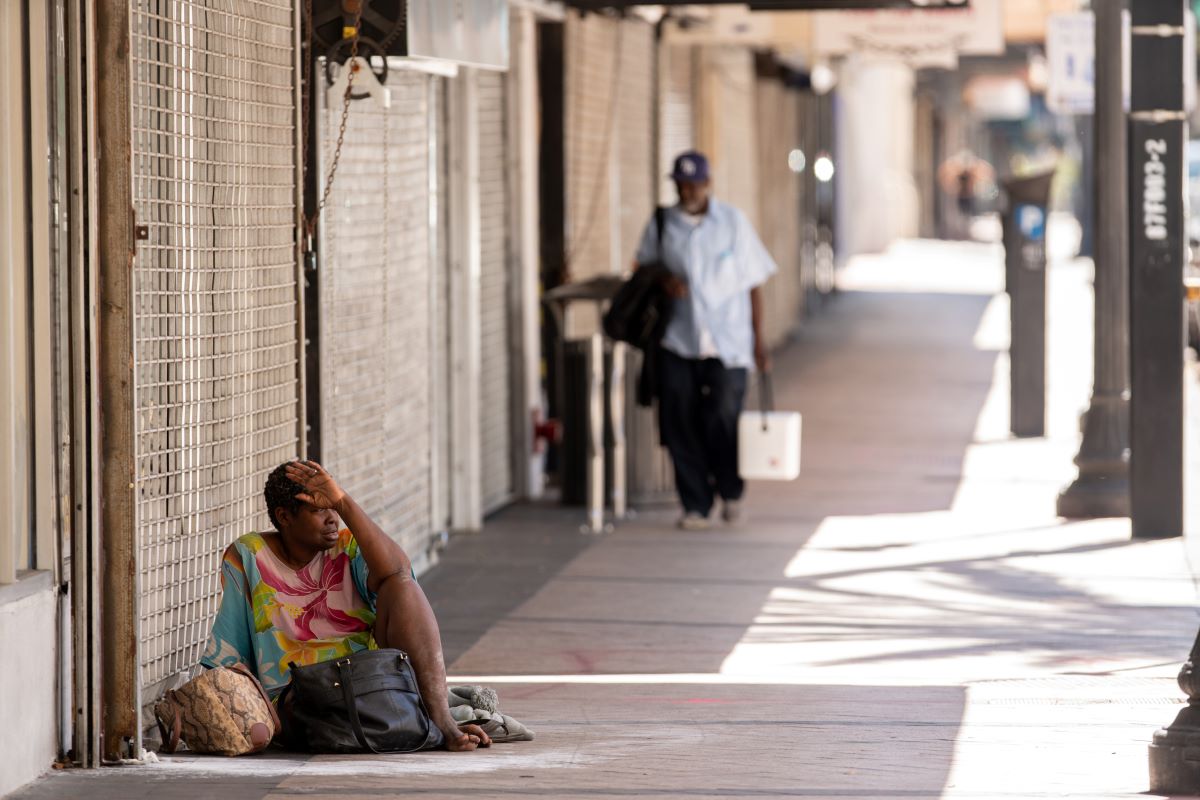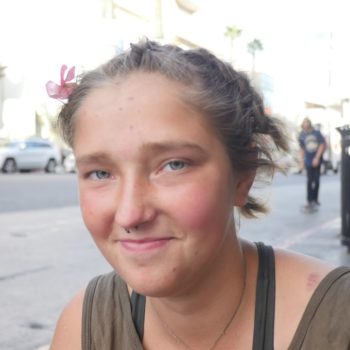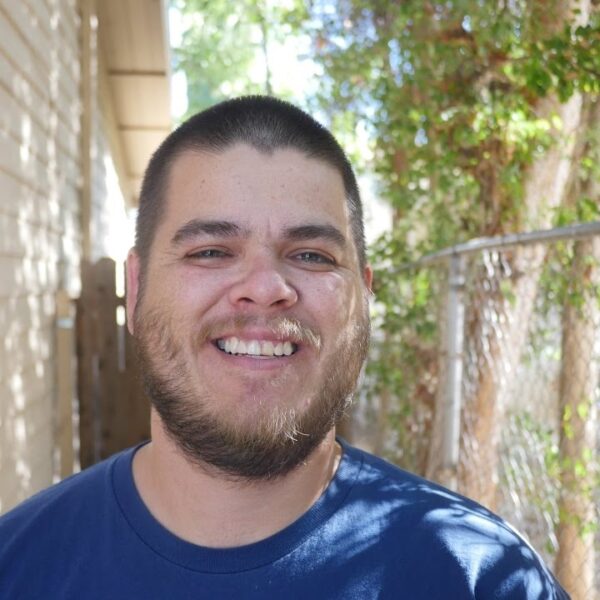Criminalizing Homelessness Worsens Harmful Health Effects of Extreme Urban Heat Caused by Climate Change
From the oppressive humidity of the Southeast to the searing heat of West Texas and Arizona, sweltering weather poses a formidable challenge to anyone who must venture outdoors, even briefly, during its peak.
However, to merely label it unpleasant would be a substantial understatement. Beyond the sheer discomfort, it presents a grave and imminent danger. As the temperature soars, the risks of dehydration and heat stroke escalate significantly.
What was once the already notorious conditions of humidity in the Southeast and intense heat in the Southwest have escalated to an alarming degree in recent years, primarily attributed to the effects of global warming. This trend is particularly disconcerting for those without homes, as they endure prolonged periods outdoors, often far removed from the relief of air conditioning that those with shelter can access.
Homeless people try to shield themselves from direct sunlight by living in tents or under bridges or trees. These living accommodations are unacceptable as they do not satisfy basic human needs. To make things worse, the criminalization of homelessness is taking away what little shelter homeless people can access. Across the country, there are tent sweeps, and homeless people are forced to come out from under bridges. When these acts of criminalization happen in a city as hot as Miami, the consequences are devastating.
Miami PD’s Efforts Create a More Dangerous Situation for Homeless People
Miami saw its hottest July this year and had a heat index of over 100 degrees every day from June 11 to July 26. It has gotten so bad that people who fall onto the sidewalk have been getting first- and second-degree burns from the 125- to 130-degree concrete.
The Miami Police Department has a specialized unit called the HEAT, which stands for Homeless Empowerment Assistance Team. But Miami Coalition to Advance Racial Equity (MCARE) executive director David Peery says, “What they actually empower and assist is the criminalization of homelessness.” The HEAT has been evicting people underneath bridges, confiscating and destroying their tents.
A question that homeless advocates have been screaming about is: Why do some people prioritize removing tents over providing homeless people with as much shelter as possible, which aligns with basic human kindness? The extreme heat, which we can all feel, should bring out the humanity in all of us.
‘War Against the Poor’
“They remove tents because that’s the knee-jerk reaction of localities to criminalize this type of social behavior,” Peery said. “[They want to] criminalize poverty. It’s simply another component of the war on poor people. NOT a war on poverty; a war against the poor.”
The encampment sweeps are often justified by the desire not to inconvenience people walking around the city. But Peery says the encampments tend to be kept clean while not blocking sidewalks.
“You see residents sweeping outside of their tents many times. Folks particularly don’t want to live in squalor. And it’s bad enough to have rats running around, period. But you certainly don’t want rats running inside your tent.”
“It is mostly a sight issue because the city, especially the city of Miami Beach, does not want tourists looking at the tents. They don’t want us seeing the consequences of their irresponsible decisions not to regulate the affordable housing industry. They just don’t want to display the consequences of their failure to provide housing as a human right. They want to sweep the issue of homelessness under the rug.”
In addition to encampment sweeps, there are also food-sharing bans in Miami that discourage groups from handing out food and water. It is unclear if the city is officially banning water sharing, but water sharing has been cut off by banning food sharing.
A third strike against Miami is that it is chopping down trees to drive homeless people away. Like the tent sweeps, this takes away shade. At the same time, it also increases temperature because trees absorb carbon dioxide, a greenhouse gas.
All this is very troubling, as Miami has a lot going wrong. But the issue is widespread across a country whose temperatures are rising, making previously pleasant summer cities annoyingly hot and already scorching cities unbearable.
Southwest Cities Scramble to Address the Needs of Homeless People Exposed to Extreme Heat
The burns caused by the sidewalk are happening in Phoenix, too. Meanwhile, Texas has quite a few major cities dealing with extreme heat, including San Antonio, located in southcentral Texas.
“It is dangerously hot outside in San Antonio, and we have had sustained ‘Excessive Heat Warnings’ for several weeks, averaging over 100 degrees daily,” said Katie Vela Wilson, executive director of The South Alamo Regional Alliance for the Homeless (SARAH). “This has led to more people who are unsheltered seeking shelter programming.”
At least in San Antonio, there is no discouragement of water sharing.
“It’s legal to hand out water,” Vela said. “We also have day centers available that have food, water, showers, and outdoor hoses so that water is always available.”
Los Angeles has a similar story when it comes to water sharing.
“Fortunately, it is completely legal for anyone to give someone experiencing homelessness water or other life-saving materials,” said Jennifer Hark Dietz, CEO of People Assisting The Homeless (PATH), an LA nonprofit. “We encourage people to check on their neighbors and consider keeping cold water on hand – for example, in your car, in a bag – on hot days to pass out to people.”
Still, being outside for long periods is a burden for homeless people in LA.
“Temperatures in Los Angeles regularly reach triple digits in the summer and fall, especially in urban areas,” Dietz said. “Climate change has also resulted in more extreme weather patterns, including extended periods of excessive rain and cold that occurred this winter.”
Dietz stresses that Housing First, and not criminalization, is the answer.
“We have seen time and again, in Los Angeles and other jurisdictions, that enforcement of anti-camping bans does not effectively end homelessness. PATH specializes in a trauma-informed, Housing First model of outreach and housing navigation, and we continue to advocate with our elected officials to pursue those approaches instead of enforcement.”
Building More Affordable Housing Helps People and the Environment
Meanwhile, in Miami, MCARE is also doing everything possible to combat criminalization. It is researching whether the adverse health effects of encampment sweeps (in any weather) and the adverse health effects of extreme heat combine to equal something worse than the sum of those two issues.
They’re trying to see if it’s synergistic, if “1 + 1 = 3,” which is how Peery put it.
To research this, MCARE created the Climate Change Workgroup (CCW), a team of epidemiologists, street medicine physicians, and Florida International University sociology professor Matt Marr.
In addition, the Miami-Dade Homeless Trust has established cooling centers within shelters and expanded the hours people can enter these shelters. But the police only directly transport homeless people to these cooling centers when the heat index reaches an extreme heat emergency level.
Ultimately, global warming is extremely dangerous for all of us, whether housed or homeless, as we are headed toward an unlivable planet. Just like we need to solve homelessness, we must solve global warming. Dietz points out that solving the first can help solve the latter.
“For an organization like PATH, one of the best ways we can do our part for the environment is by building more housing, especially affordable housing, in dense urban areas. Research shows that dense infill housing near businesses and public facilities lowers carbon emissions by reducing the need for people to drive long distances. Ultimately, building more housing helps people and the environment.”













